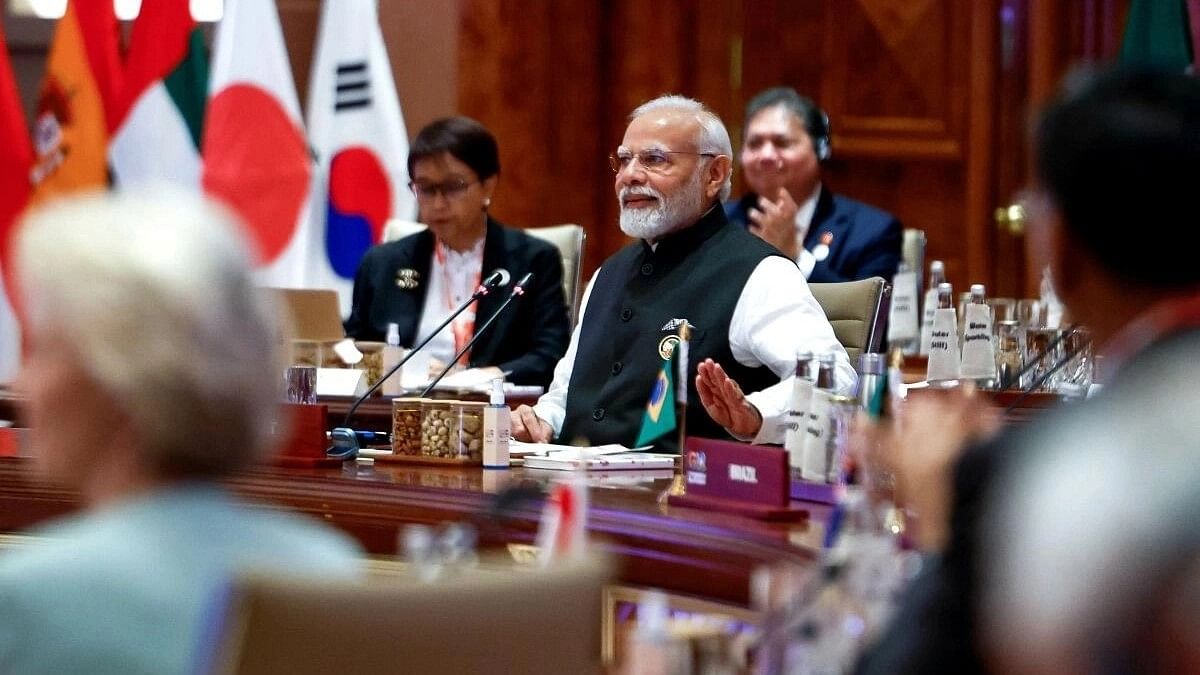
PM Narendra Modi at the G20 summit in New Delhi.
Credit: Reuters Photo
Prime Minister Narendra Modi on Saturday announced creation of an International Biofuel Alliance and proposed launching of a G20 satellite mission for environment and climate observations.
“The need of the hour is that all countries should work together in the field of fuel blending. Our proposal is to take an initiative at a global-level to take ethanol blending in petrol up to 20 per cent. Or alternatively, we could work on developing another blending mix for the greater global good,” he said at the second session of the G20 summit.
“In this context, today, we are launching the Global Biofuel Alliance. India invites all of you to join this initiative,” he said.
The Prime Minister said the Alliance would be open to multiple mixing combinations as long as such a mixing formula ensures a stable energy supply while also contributing to climate security.
“We recognise the importance of sustainable biofuels in our zero and low-emission development strategies, and note the setting up of a Global Biofuels Alliance,” noted the New Delhi Leaders Declaration, adopted unanimously by the G20 members.
The idea of having Global Biofuel Alliance was pushed by India, USA and Brazil, three leading producers and consumers of biofuel.
This Alliance will facilitate cooperation and intensify the use of sustainable biofuels, including in the transportation sector. It will place emphasis on strengthening markets, promoting global biofuel trade, developing appropriate policies and encouraging individual nations to come up with their own programmes.
The biofuel alliance will be of the International Solar Alliance – announced by Modi in 2015 – which currently has 120 sunshine nations between the Tropic of Cancer and the Tropic of Capricorn. Over the last seven years, the ISA has emerged as a key player in international energy discussions.
Underlining India’s Chandrayaan success story, Modi said that the data would be shared with scientists from all over the world. “With the same spirit, India is proposing the launch of the 'G20 Satellite Mission for Environment and Climate Observation'. The climate and weather data obtained from this will be shared with all the countries, especially the countries of the Global South.” he said.
Even as discussions on carbon credit have been ongoing for decades, the Prime Minister said such a crediting concept came with a negative perspective by underscoring what should not be done.
“As a result, what positive steps should be taken, often do not receive adequate attention. There is a lack of encouragement for positive initiatives. Green Credit shows us the way forward. To promote this positive thinking, I propose that G20 countries start working on a 'Green Credit Initiative,” he said.
